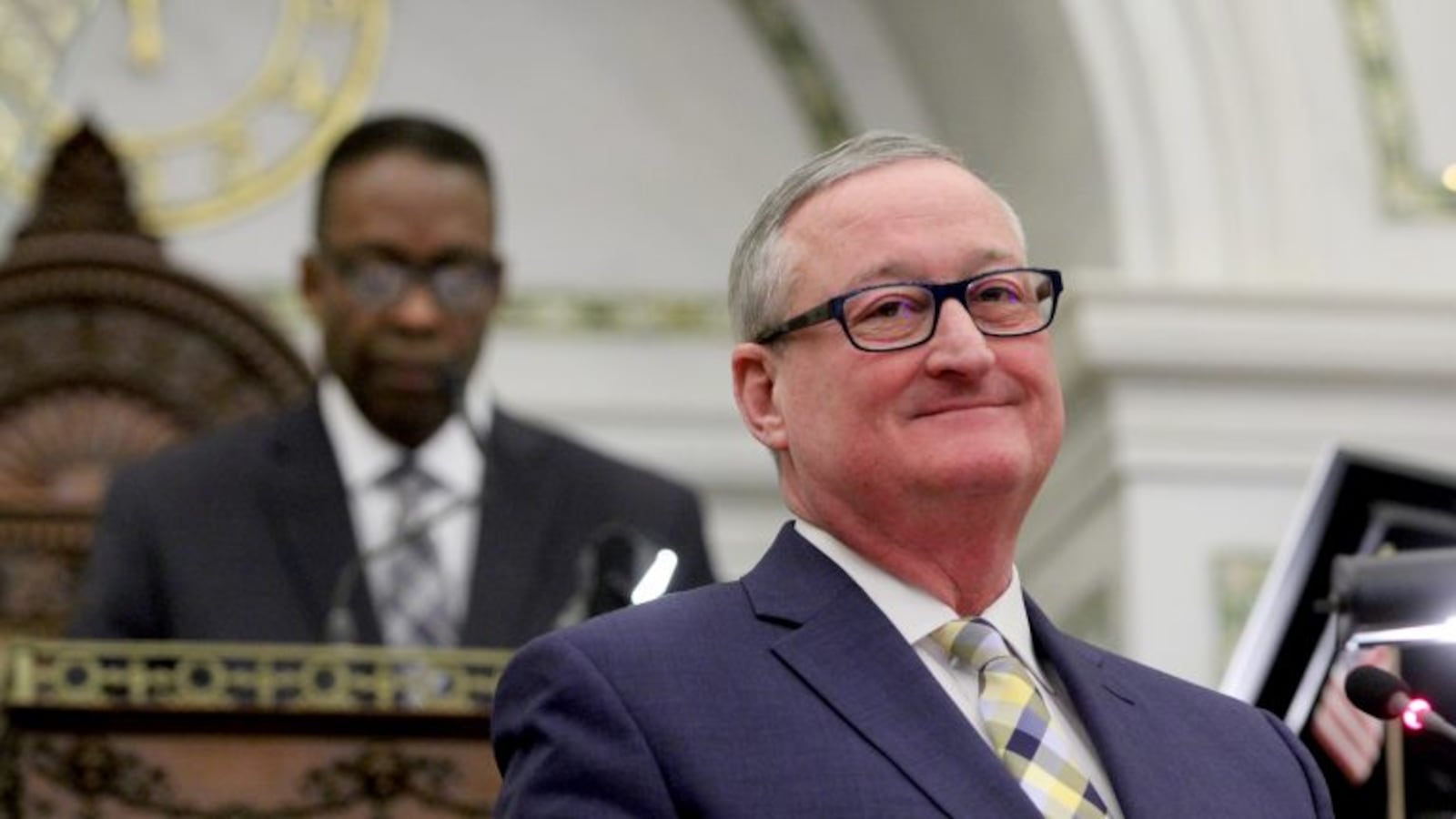This article was originally published in The Notebook. In August 2020, The Notebook became Chalkbeat Philadelphia.
In his budget address on Thursday, Mayor Kenney wanted to make it clear that he puts a high priority on education funding, now and in the future.
The mayor announced that he wants the city to contribute $214 million to the School District from its general fund – on top of the local revenue the District gets through taxes the city raises specifically for its needs. Those include the property tax, of which the District gets 55 percent; the use and occupancy tax; the liquor-by-the-drink tax; the school income tax; the cigarette tax; and the 1 percent sales tax surcharge that was enacted in 2014.
Compared to $180 million from the general fund last year, the $214 million is an increase of more than $33 million. The five-year plan anticipates steady increases each year after that.
Altogether, nearly half the District’s annual $3 billion general operating budget comes from local sources, or close to $1.5 billion a year. The rest comes from the state. Revenue sources for the District’s Fiscal Year 2018 are on page 40 of this document.
In total, Kenney said, the city was pledging to give $1.2 billion to the District over the next five years from its own general fund, which is $700 million more than the city had planned to contribute from the general fund as recently as 2018.
“This mayor has made school funding his main priority,” said City Budget Director Anna Adams. “It’s one of the main things the city has invested in.”
But such a city contribution, which can vary from year to year, is a relatively new addition to the city’s school funding repertoire. It was made a regular feature of the city’s share of District spending during the reign of the School Reform Commission, when the District was effectively under state control.
Last year, just after initiating the District’s return to local control and pledging to significantly increase its financial commitment, Kenney tried a different tack – raising the rate of the property tax. That is the city’s largest and steadiest source of funding for the District, accounting for more than half of its local revenue. He wanted to raise the property tax by 6 percent, which he said would have raised an additional $475 million for the District over five years.
But that idea was shot down in City Council, which said reassessments had already resulted in property tax hikes for many homeowners and instead found other ways to make up an anticipated District shortfall starting in fiscal 2022.
Nobody expected Kenney to suggest a property tax rate hike in an election year. So he has instead turned to making a larger contribution to the District from the general fund.
Although Kenney has every intention of fulfilling the promise of his latest five-year plan, that method is less reliable, subject more to political whims than a regular source of dedicated revenue.
Adams said that any funding source, for the District or otherwise, is subject to change by City Council or any mayor.
“Technically, they could … reduce property taxes,” she said. “If you’re making that argument, they could come in and completely wipe out School District funding. It’s highly unlikely; that’s part of why we do a five-year plan.”
Kenney has not been a supporter of another funding source for the District favored by education advocates – ending the 10-year tax abatement for developers. A recent study by Our City Our Schools estimated that the District loses $61 million in revenue a year from the abatement, which most heavily affects the District because it is far more reliant on the property tax than the city government is.
The District’s latest budget documents warn that without significant new funding sources, it will start running a shortfall in 2023.
In a statement, Superintendent Willian Hite called Kenney’s budget plan “bold” and said it “would allow the District to continue the progress we have made to improve facilities, strengthen our hard-fought fiscal stability, and expand access to valuable learning opportunities to all students.”


